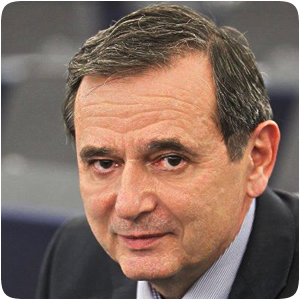 2019 will probably remain in the European history as the year of the The Green Deal, as there are too little chances to remain as the year of BREXIT. But... you never know. The Green Deal was announced by the new head of the EU Commission in July 2019.
2019 will probably remain in the European history as the year of the The Green Deal, as there are too little chances to remain as the year of BREXIT. But... you never know. The Green Deal was announced by the new head of the EU Commission in July 2019.
Long story short: Europe climate has to be neutral by 2050, as the head of the EC Commission Ms Ursula von der Leyen put it.
Now the question is: what could that mean for the aviation industry? Aviation currently accounts for 2% of global carbon emissions. Since 1990, industry fuel efficiency has improved by 52%. Worldwide, flights produced 895 million tons of CO2, while the humans over 42 billion. These are the figures on aviation green footprint.
According to the latest Aviation Environmental Report published in January this year the number of flights (EU28 + EFTA) increased by 8% between 2014 and 2017, and is expected to grow by 42% from 2017 to 2040 in the most-likely forecast. In addition to this, technological improvements, fleet renewal and increased operational efficiency have been able to partially counterbalance the impact of recent growth, but there has still been an increase in overall noise and emissions since 2014. In 2016, domestic aviation and international aviation were together accountable for 3.6% of the total EU28 greenhouse gas emissions and for 13.4% of the emissions from transport. The environmental efficiency of aviation continues to improve and, by 2040, further improvements are expected in average fuel burn per passenger kilometer flown (-12%) and noise energy per flight (-24 %). By 2040, CO2 and NOX emissions from aviation are expected to increase by at least 21% and 16%, respectively.
I agree with Ms von der Leyen as she said that the Green Deal "represents a historical occasion to modernize EU's economy, revitalize its industry and ensure long-term growth and jobs." The question is: how could we do this in a balanced competitive manner preserving the jobs while striving for decarbonization?
I would be glad to see that the several different policy proposals of which the Green Deal is made up of will focus more on results, competitiveness, fair transition and jobs than on imposing new taxes. The impact of a transition to carbon neutrality is comprehensive, especially for the regions where working places and wealth have been generated due to these industries. This means that a comprehensive policy, which also considers social aspects on top of climate, energy, environmental and economic aspects, is needed.
The measures that the EU and aviation companies take to reduce CO2 emissions should not kill the competitiveness of these companies nor reduce jobs. EU regulatory decisions must be based on innovation and the concrete results of the researchers in the field. The funds from the Horizon program should not, for example, be used for teachers’ salaries, but for research with concrete results. Decarbonization of aviation can have immediate results by implementing The Single European Sky. Unfortunately, we are dealing with a double language: Member States, on the one hand, are talking about decarbonization, and on the other, they are blocking an easy measure with immediate results, such as the Single European Sky. The objective of the Single European Sky (SES) is to reform the architecture of air traffic control in the EU, in order to meet future capacity and safety needs. This should be achieved through improving the overall performance of air traffic management (ATM) and air navigation services (ANS), with the specific aims of increasing airspace capacity threefold (so reducing delays), improving safety performance tenfold, reducing by 10% the environmental impact of flights and reducing ATM costs by 50%.
Small, regional companies in Europe have lost 10-15% of their customers due to environmental taxes. Especially these ones must be supported by the EU. They need affordable biofuels, as at the moment they are simply too expensive. Of course, we want a clean environment, and that’s what we do for our citizens. But affordable airplane tickets would be a measure for the benefit of our citizens as well.
Aviation companies need incentives to reach decarbonization targets. We cannot ask them to keep adding taxes, because this will affect their competitiveness, on one hand, and on the other, it will mean that we place a burden on the travelers' shoulders as well as on theirs, which will lead to more and more expensive tickets. Aviation players need incentives to invest in technology and biofuels. In an increasingly globalized world we need to move quickly not only from one country to another, but from one continent to another. Air connectivity is vital and therefore it needs incentives to get sustainable.
We want decarbonization? What about Clean Sky, Shift to Rail, Single European Sky as solutions for decarbonization? Why don't Member States want to
start implementing SES?
We keep asking for climate proofing. What about competitiveness proofing? What about job proofing? The new Commission should find a balance between the three of them, as the Green Deal should be about people, eventually, not only about climate.